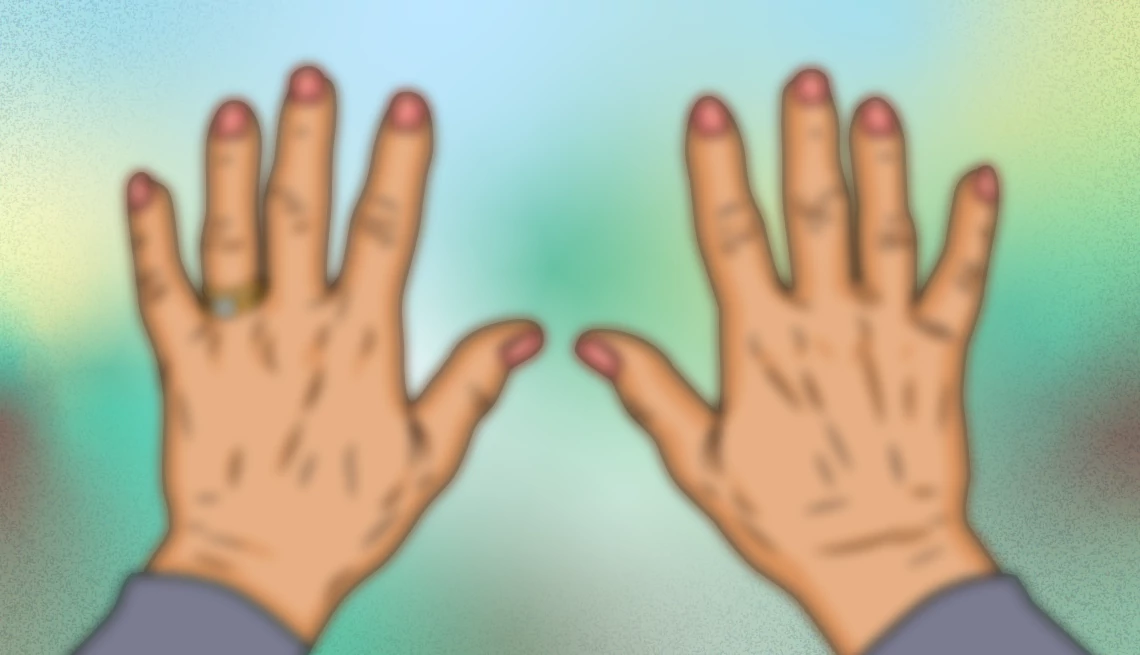
Sudden blurry vision in both eyes
- Select a language for the TTS:
- UK English Female
- UK English Male
- US English Female
- US English Male
- Australian Female
- Australian Male
- Language selected: (auto detect) - EN
Play all audios:

CLOSED-ANGLE GLAUCOMA With glaucoma, ocular fluid can’t drain as it should, and the pressure from that build-up in the eye damages the optic nerve, leading to partial vision loss or
blindness. This happens suddenly with closed-angle glaucoma (a.k.a., angle-closure glaucoma or narrow-angle glaucoma), a rare form of the condition. Complicating matters: Although some
people experience early symptoms like halos, mild headaches, eye pain, or blurred vision, people at risk for closed-angle glaucoma usually show no symptoms at first. IS SUDDEN BLURRED
VISION AN EMERGENCY? It can be. Obviously, the temporary cloudy vision caused by eye drops isn’t typically a medical emergency. But when blurred vision is accompanied by symptoms such as
paralysis, dizziness, or trouble talking (all signs of a stroke) or a sudden increase in floaters, flashes of light, and a dark shadow on the sides or in the middle of your field of vision
(symptoms of retinal detachment), it’s a medical emergency that requires immediate medical attention. Not sure? Play it safe. Call 911 or head to the emergency room right away. “Sudden
blurred vision is more of an indication of an acute condition in the body that needs to be urgently assessed,” says Abugo. WHAT ARE THE TREATMENT OPTIONS FOR SUDDEN CLOUDY VISION IN BOTH
EYES? It depends on the cause. Blurry vision due to problems with the eye itself may be treated with eye drops, medications, or surgery. If inflammation is to blame, steroids may be used.
And if there’s sudden blockage of a blood vessel, the goal is to improve blood flow as soon as possible. “Treatment of blurred vision usually takes a systematic approach that looks at onset
— for instance, gradual versus sudden — associated symptoms such as slurred speech or limb weakness, and medical history,” says Abugo. If the blurred vision came on suddenly, your doctor
will generally treat the condition causing the sudden blurriness. “This is in contrast to a cataract, which typically is addressed non-urgently over a series of visits that may result in
surgery by your ophthalmologist,” adds Abugo. “If any change in vision is experienced, it’s important to see your ophthalmologist right away,” advises Brissette. “Prompt evaluation by a
healthcare professional can help diagnose the underlying cause and prevent further damage, which is important to preserving your vision and health.” Illustration: Remie Geoffroi WHAT IF YOU
GET BLURRY VISION WHEN YOU STAND UP? You may have a type of low blood pressure called orthostatic hypotension, a condition in which your blood pressure quickly drops when you stand up after
sitting or lying down. “Rapid onset blurriness when you stand is most commonly related to an abrupt decrease in blood supply to the head,” says Andreoli. “Blood pressure issues, medications,
and dehydration can often cause this type of change.” If it happens regularly, you should see an ophthalmologist. Symptoms usually improve when you change your medications or make a
practice of standing up slowly. CAN DEHYDRATION CAUSE BLURRY VISION? Dehydration can also raise your risk for dry eye syndrome, one of the most common causes of blurry vision, and that in
turn can up your chances of having blurred vision. CAN STRESS CAUSE SUDDEN BLURRY VISION? Stress is to blame for everything from chest pain and a weakened immune system to digestive woes,
muscle aches, trouble sleeping—the list goes on. It is not, however, usually to blame for blurry vision. A rare exception: Ophthalmic migraines (a.k.a. ocular migraine and retinal migraine).
“Stress can lead to migraine issues in the brain, and this can cause an isolated visual event called ophthalmic migraine which is a loss of vision that lasts 15 to 30 minutes,” says
Andreoli. Ophthalmic migraines can affect vision in one or both eyes, adds Andreoli, though research suggests they more commonly affect just one eye. WHAT HAPPENS IF YOU HAVE BLURRY VISION
AND NAUSEA? This odd combination of symptoms should be treated as a medical emergency. “Blurry vision that comes with pain in the eyes and nausea can be very dangerous and can represent a
severe eye condition called acute angle closure glaucoma,” says Andreoli. “This can cause blindness very quickly. Any patient with blurry vision, pain, and nausea should immediately call
their local ophthalmologist.”
